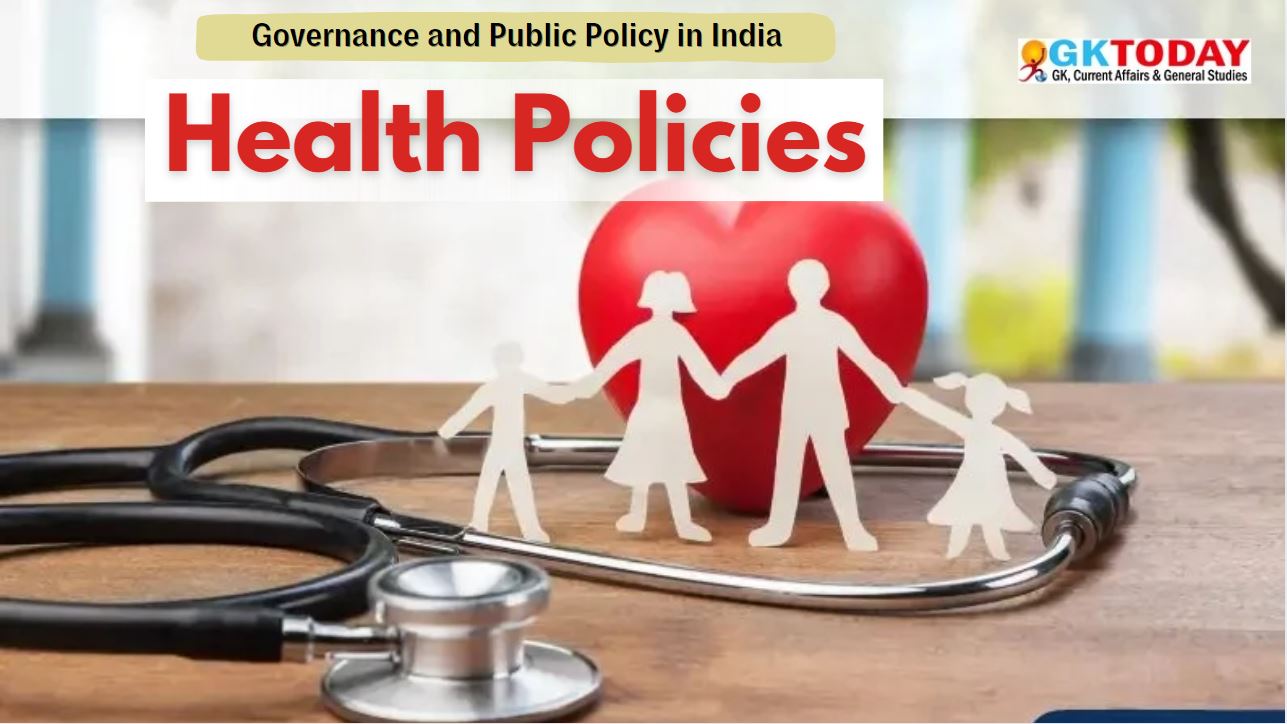Health Policies in India – UGC-NTA NET Political Science
Health policies in India are crucial for shaping the nation’s healthcare system. They aim to improve health outcomes, ensure equitable access to healthcare, and address health disparities.
Introduction to Health Policies
Health policies are defined as the decisions, goals, and actions that influence the health system. They set the framework for healthcare delivery and outline the objectives for improving public health. The importance of health policies cannot be overstated. They are essential for enhancing healthcare access and addressing various health disparities.
Historical Context
The evolution of health policies in India can be divided into two main phases:
Pre-Independence Era
– During colonial rule, public health policies were limited in scope. – The focus was primarily on controlling epidemics rather than promoting overall health.
Post-Independence Developments
– In 1952, the Ministry of Health and Family Welfare was established. – The emphasis shifted towards primary healthcare, aiming to provide basic health services to all citizens.
Key Health Policies and Programs
India has implemented several key health policies and programs to enhance healthcare delivery:
National Health Policy (NHP)
– The first NHP was introduced in 1983, with revisions in 2002 and 2017. – Aims include universal access to healthcare, reducing disease burden, and improving healthcare quality.
National Rural Health Mission (NRHM)
– Launched in 2005, NRHM focuses on healthcare delivery in rural areas. – Key components include strengthening healthcare infrastructure and enhancing maternal and child health.
National Urban Health Mission (NUHM)
– Initiated in 2013, NUHM aims to provide equitable healthcare to urban poor populations.
Ayushman Bharat
– Launched in 2018, this initiative aims to provide health insurance to economically vulnerable groups. – It includes Health and Wellness Centres (HWCs) and the Pradhan Mantri Jan Arogya Yojana (PM-JAY).
Health Indicators and Outcomes
Health policies have led to notable improvements in health indicators: – Life Expectancy – Increased from 32 years in 1947 to approximately 69 years in 2021. – Infant Mortality Rate (IMR) – Reduced from 126 per 1,000 live births in 1990 to 28 in 2021. – Maternal Mortality Ratio (MMR) – Decreased from 374 per 100,000 live births (2010-12) to 113 (2016-18).
Challenges in Health Policy Implementation
Despite progress, several challenges persist in implementing health policies:
- Infrastructure: Inadequate healthcare facilities, particularly in rural areas.
- Human Resources: Shortage of healthcare professionals and uneven distribution across regions.
- Funding: Low public expenditure on health, around 1.5% of GDP.
- Access and Equity: Disparities in healthcare access based on socio-economic status, gender, and geography.
Role of Government and Institutions
The government plays a vital role in health policy formulation and implementation:
Ministry of Health and Family Welfare
– The central authority responsible for health policy in India.
State Health Departments
– They manage local health services and implement programs tailored to regional needs.
National Health Systems Resource Centre (NHSRC)
– Provides technical support and guidance for effective health policy implementation.
Public-Private Partnerships (PPP)
The private sector’s role in healthcare delivery is growing: – Initiatives encourage collaboration in health infrastructure development, service delivery, and health insurance. – PPPs aim to enhance the efficiency and reach of healthcare services.
Recent Developments and Innovations
Recent trends in health policy reflect a shift towards innovation:
Digital Health Initiatives
– Telemedicine and e-health records have gained popularity, especially during the COVID-19 pandemic. – Mobile health applications are improving access to healthcare information.
COVID-19 Response
– The pandemic brought into light the need for robust health infrastructure. – Vaccination drives and emergency health policies were rapidly implemented.
International Commitments and Collaborations
India is committed to global health initiatives:
Sustainable Development Goals (SDGs)
– Goal 3 focuses on ensuring healthy lives and promoting well-being for all.
Global Health Initiatives
– Collaborations with WHO, UNICEF, and other international organisations enhance health programs.
Future Directions
Looking ahead, several key areas require emphasis:
- Preventive Healthcare: Increasing focus on wellness and preventive measures.
- Integration of Traditional Medicine: Combining Ayurveda and Yoga with modern healthcare practices.
- Resilient Health Systems: Strengthening systems to withstand future pandemics and health crises.


